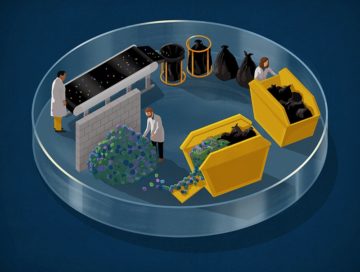Elie Dolgin in Nature:
 Salwa Sebti was growing impatient. In 2014, she and her colleagues at the University of Texas Southwestern (UTSW) Medical Center in Dallas had begun tracking mice that had a genetically enhanced ability to detoxify their cells. The goal was to test the anti-ageing effects of boosting autophagy, the biological housekeeping process by which cells rid themselves of damaged components. But it was almost two years — a timespan roughly equivalent to 70 years in humans — before the mice showed any clear signs of health improvements.
Salwa Sebti was growing impatient. In 2014, she and her colleagues at the University of Texas Southwestern (UTSW) Medical Center in Dallas had begun tracking mice that had a genetically enhanced ability to detoxify their cells. The goal was to test the anti-ageing effects of boosting autophagy, the biological housekeeping process by which cells rid themselves of damaged components. But it was almost two years — a timespan roughly equivalent to 70 years in humans — before the mice showed any clear signs of health improvements.
It was worth the wait. The animals’ hearts and kidneys had less tissue scarring than usual; spontaneous cancers were kept at bay; and the mice lived approximately 10% longer. As the data finally poured in, Sebti recalls thinking to herself: “Oh wow, we have a strong phenotype.”
Other scientists had previously reported similar age-defying benefits of enhanced autophagy in worms and flies. But the UTSW study was breaking new ground. Spearheaded by Beth Levine — a pioneering autophagy researcher who died of cancer in 2020 — and co-led by two of her former postdocs, Sebti and Álvaro Fernández, it was the first definitive demonstration that boosting the autophagy machinery could promote longevity and well-being in a mammal1.
More here.
